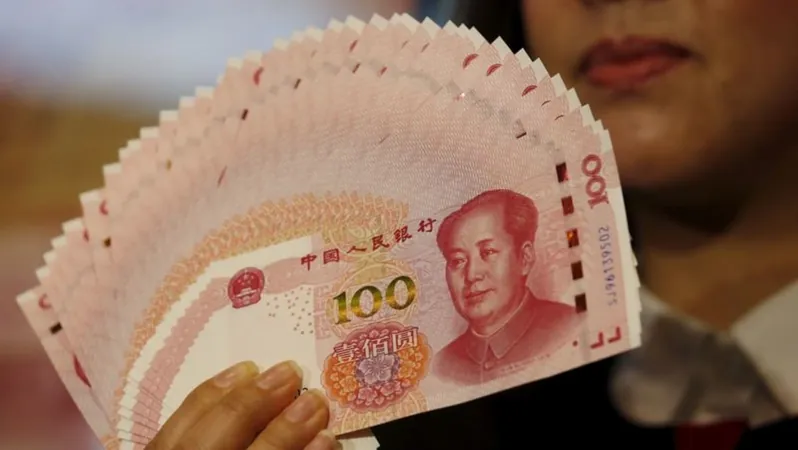
Fraudsters in China Exploit Economic Hardships Inspired by Squid Game Phenomenon
2024-12-25
Author: Li
BEIJING:
As economic strife deepens in China, con artists are seizing the opportunity to exploit the vulnerable, drawing inspiration from the viral sensation of *Squid Game*. Many financially distressed individuals are lured into deceptive schemes promising unexpected prize money and attractive debt restructuring offers, only to find themselves ensnared in scams that often mirror the dark themes of the iconic South Korean series.
Unlike the life-or-death stakes presented in *Squid Game*, where participants play for their survival, those getting involved in such challenges in China face financial peril rather than physical harm. These challenges, often framed as "self-discipline" exercises, require participants to pay hefty fees—up to several hundred dollars—in exchange for the chance to win substantial prizes, with the potential payout reaching as high as 1 million yuan (approximately US$140,000).
However, courts have increasingly recognized these so-called challenges as nothing more than elaborate traps. For instance, a recent ruling in Shandong Province ordered an organizer to reimburse a participant named Sun for 5,400 yuan (around US$740), deeming the contract as unfair and contrary to public order. Sun had entered a 30-day isolation challenge that enforced stringent rules, such as prohibiting smoking and limiting bathroom breaks to just 15 minutes. Contestants often find themselves accused of violations due to surveillance footage, leading to widespread frustration.
The recent economic downturn in China, with growth stalling at its slowest rate in over a year, has led to a surge in such isolation challenges. Policymakers have been prompted to devise strategies aimed at boosting household incomes to alleviate financial pressures that many citizens are currently facing. Popular platforms like Douyin, the Chinese counterpart of TikTok, have become hotbeds for these dubious promotions.
In addition to these isolation challenges, the National Financial Regulatory Administration (NFRA) has issued stark warnings against “debt intermediaries.” These fraudulent outfits promise to assist individuals struggling with loans and credit but often charge exorbitant fees for their services. According to reports, these intermediaries could charge up to 12% of the loan value just in service fees, with potential threats to borrowers' personal data that could be mishandled or sold.
As of November, China’s household loans had reached a staggering 82.47 trillion yuan (approximately US$11.3 trillion), highlighting the scale of the debt crisis affecting many families. With many borrowers desperate for solutions, the NFRA continues to caution against falling prey to offers that appear too good to be true.
In this climate of financial despair, the tactics of fraudsters have not only become more sophisticated but also more dangerous, making it imperative for consumers to remain vigilant and informed to avoid further financial ruin.



 Brasil (PT)
Brasil (PT)
 Canada (EN)
Canada (EN)
 Chile (ES)
Chile (ES)
 España (ES)
España (ES)
 France (FR)
France (FR)
 Hong Kong (EN)
Hong Kong (EN)
 Italia (IT)
Italia (IT)
 日本 (JA)
日本 (JA)
 Magyarország (HU)
Magyarország (HU)
 Norge (NO)
Norge (NO)
 Polska (PL)
Polska (PL)
 Schweiz (DE)
Schweiz (DE)
 Singapore (EN)
Singapore (EN)
 Sverige (SV)
Sverige (SV)
 Suomi (FI)
Suomi (FI)
 Türkiye (TR)
Türkiye (TR)